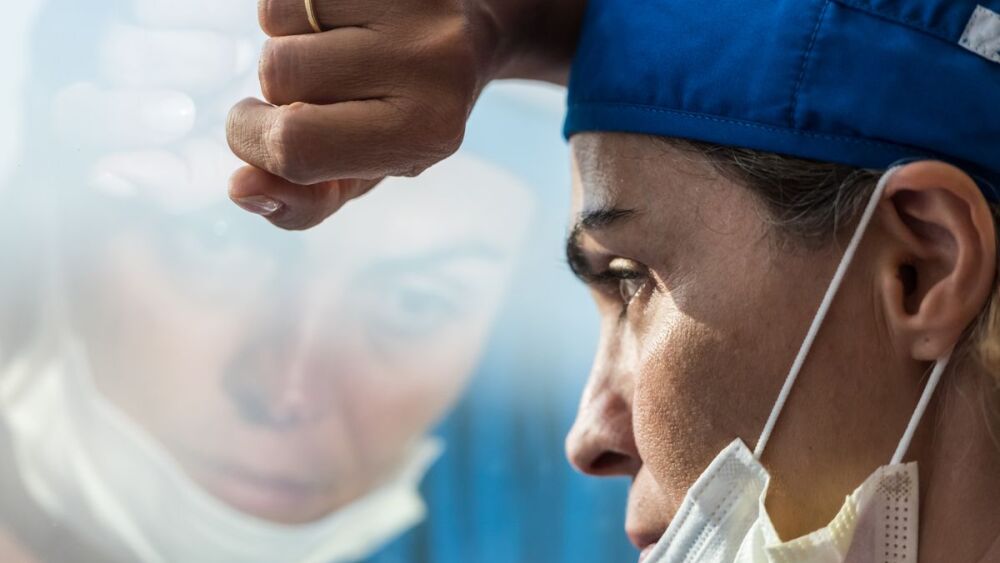By Sara Kaull, MEd; and Kris Kaull, NRP, CCEMT-P, FP-C, Pulsara
My wife, Sara, is a reforming perfectionist. For much of her life, she was obsessed with control, and presenting a “perfect” version of herself to the world. Starting with gold stars in kindergarten and accolades in her professional life, Sara added more and more to her calendar, executing every commitment to perfection until life took an unexpected turn when her father was diagnosed with terminal brain cancer, and she could no longer control what was happening around her.
As helpers and caregivers, how many of us can relate to carrying too much? It’s in our DNA. We pride ourselves on busyness and selflessness. As clinicians, we’ve taken care of others to our own detriment. We say yes to protect ourselves from the judgment of others. We say yes because we feel guilty if we don’t.
But what if saying yes stops us from becoming the best we can be?
Sixty-nine percent of EMS Trend Survey respondents report symptoms of burnout in 2022.
What if, by saying yes, we stop ourselves from being fully authentic? Here’s the difficult pill to swallow: stop saying yes to the good in life, to make space for the great.
Saying yes has a cost, it commits you to something. And, it turns out, there are 3 toxic traits that stop us from creating space for the great in our lives.
TOXIC TRAIT #1: NOT DIGGING INTO SELF-CARE
In medicine, the lack of self-care is evident. We should focus on our wellness, but we don’t, and the stats show it. Medical professionals are 10-15 times more likely to have suicidal thoughts and are 2-4 times more likely to die by suicide than the general population.
It sounds selfish to put yourself first, but is it?
Think of a brand-new mom. She is running on fumes ... not sleeping … not eating. While she is 100% committed to nurturing the baby, she can only do so much. How much better would she be if her tank was full?
How about you? How much better as a friend, family member, clinician, or world-changer would you be if your tank was completely full?
You can only give your best when you’re at your best. You’re at your best when your tank is full. If you prioritize you, you’ll have the capacity to reach for the great.
“But Kris, I don’t have time.”
It’s not that you don’t have time. It’s that you haven’t prioritized yourself as worthy of your time. You, those around you and your patients deserve the best version of you.
Challenge: Learn to recognize the signs of when your tank is running low. Uncover the activities or passions that fill your tank. Stop making excuses and build time.
Prioritizing you is scary. It opens an entirely new world of being uncomfortable.
TOXIC TRAIT #2: CHOOSING TO STAY COMFORTABLE
Becoming comfortable with the uncomfortable is an intentional action and is scary. We get nervous when we review a case in front of our peers. We are anxious when we take a protocol test. Are we good enough?
We fear the judgment that can come when we step outside our comfort zone and try something new. But once we do, we often find the fear of the unknown is greater than the reality.
Challenge: Determine which situations make you uncomfortable and reflect on why. Seek these situations until being uncomfortable becomes comfortable.
Because that, in turn, will make it easier to be vulnerable.
TOXIC TRAIT #3: NOT ALLOWING YOURSELF TO BE VULNERABLE
How do you get to the great without being vulnerable? You can’t. It’s impossible. It doesn’t mean that you won’t experience moments of great, but if you want a life filled with “great” you have to get used to being vulnerable.
When things get challenging, all we can control is our behavior; how we feel and how we respond. But taking ownership is hard to do. It’s infinitely easier to point blame. But it’s unfair and leads to broken relationships much of the time.
And yet, instead of becoming walled up and defensive, vulnerability has the power to do the opposite.
Challenge: Notice which situations cause you to want to run away. Stay present during those uncomfortable moments. Challenge yourself when you’re tempted to get walled up to stay in that vulnerable moment.
Want a great career in medicine? Want to be a world changer? Then, be willing to say no. Be willing to prioritize you. Be willing to be uncomfortable. Be willing to be vulnerable. And … be prepared for the great that follows.
Visit Pulsara for more information.
About the authors
Sara Kaull is the executive director of Simulation in Motion – Montana (SIMMT), a high-fidelity simulation non-profit serving healthcare in rural communities. Her background includes education, branding, marketing, consulting, team building, sales and public speaking. When not creating, Sara is the ultimate bookworm, an avid writer and enjoys world travel with her family.
Kris Kaull has driven innovation and positive change in EMS for nearly 30 years. He combined his love for EMS and technology, developing new information sources and platforms that improve patient care and EMS operations. He is regarded as a leading expert in EMS, healthcare, online media and technology. He regularly speaks and writes on topics ranging from technology to current clinical issues to leadership – all with a focus on the importance of the human connection.
This article originally appeared in “What Paramedics Want in 2022.”








![139-SouthSound911_6688_Photo[88].jpg](https://lexipol.brightspotcdn.com/dims4/default/a73fe75/2147483647/strip/true/crop/5760x3283+0+278/resize/100x57!/quality/90/?url=https%3A%2F%2Fk1-prod-lexipol.s3.us-east-2.amazonaws.com%2Fbrightspot%2F62%2F7f%2F5478874442d18a27b7bdb5eb3888%2F139-southsound911-6688-photo88.jpg)




